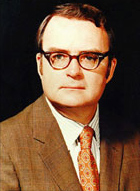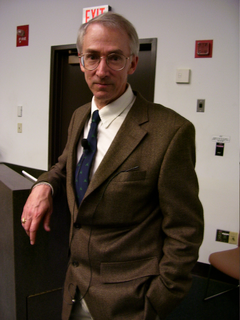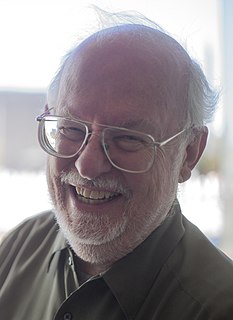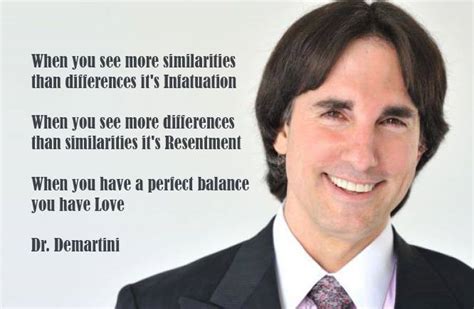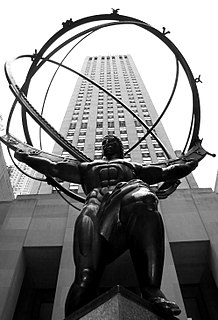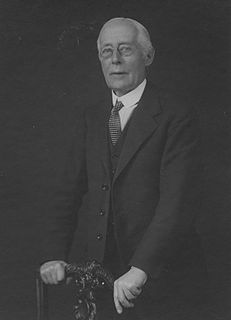Top 181 Altruism Quotes & Sayings - Page 3
Explore popular Altruism quotes.
Last updated on April 16, 2025.
To talk about the need for perfection in man is to talk about the need for another species. The essence of man is imperfection. Imperfection and blazing contradictions-between mixed good and evil, altruism and selfishness, cooperativeness and combativeness, optimism and fatalism, affirmation and negation.
While it is true that the taking of life not yet born or in it's final stages is sometimes marked by a mistaken sense of altruism and human compassion it cannot be denied that such a culture of death, taken as a whole, betrays a completely individualistic concept of freedom, which ends up by becoming the freedom of "the strong" against the weak who have no choice but to submit.
I believe all suffering is caused by ignorance. People inflict pain on others in the selfish pursuit of their happiness or satisfaction. Yet true happiness comes from a sense of inner peace and contentment, which in turn must be achieved through the cultivation of altruism, of love and compassion and elimination of ignorance, selfishness and greed.
Women's rights in essence is really a movement for freedom, a movement for equality, for the dignity of all women, for those who work outside the home and those who dedicate themselves with more altruism than any profession I know to being wives and mothers, cooks and chauffeurs, and child psychologists and loving human beings.
Men who have sacrifice their well-being, and even their lives, for the cause of truth or the public good, are, from an empirical point of view - which scorn ("fait fi", Fr.) virtue and altruism - regarded as insane or fools; but, from a moral standpoint, they are heros who do honour ("qui honorent", Fr.) humanity.
None of us are rational economic men as we're supposed to be portrayed in economic theory where mixes of passions, of desires, of moral principles, of self-deception, of altruism, of concern of others, of concerns for ourselves and an interest in our bank accounts. And social policies have to be responsive to the complexity of who we are as people or else, like the war on drugs, they're simply going to fail.
Of all the nonsense that twists the world, the concept of 'altruism' is the worst. People do what they want to, every time. If it pains them to make a choice - if the choice looks like a 'sacrifice' - you can be sure that it is no nobler than the discomfort caused by greediness... the necessity of deciding between two things you want when you can't have both.
By consequence I hold that no one ever did, or can do, anything for "society."... Comte invented the term altruism as an antonym for egoism, and it found its way at once into everyone's mouth, although it is utterly devoid of meaning, since it points to nothing that ever existed in mankind; This hybrid or rather this degenerate form of hedonism served powerfully to invest collectivism's principles with a specious moral sanction, and collectivists naturally made the most of it.
the psychological attitudes which are indispensable in the American market place are disastrous to family life. Family life ... requires yieldingness, generosity, sympathy, altruism, tenderness-all the qualities, in fact, which lead straight to bankruptcy. ... the American family is tragically out of gear with the profit structure which has mushroomed up around it.
One reason that a truth and reconciliation process is needed for group selection is to return to the simplicity of the original problem and Darwin’s solution. As Ed Wilson and I put it in our recent review article titled “Rethinking the Theoretical Foundation of Sociobiology“: Selfishness beats altruism within groups. Altruistic groups beat selfish groups. Everything else is commentary.
Because I took an oath to help people. To protect them from The League and any corrupt government. (Devyn) Yeah, and I know people better than to believe that for even an instant. Altruism is dead. People use and they take until you’re nothing but a bleeding corpse on the ground at their feet. (Alix)
I wish I could recall with clarity the impulse that compelled me to help bring this camp into being. I'd be pleased if I could announce a motive of lofty purpose. I've been accused of compassion, of altruism, of devotion to Christian, Hebrew, and Muslim ethic, but however desperate I am to claim ownership of a high ideal, I cannot. I wanted, I think, to acknowledge Luck; the chance of it, the benevolence of it in my life, and the brutality of it in the lives of others, made especially savage for children because they may not be allowed the good fortune of a lifetime to correct it.
I don't care if you're a parent giving to a child, a worker to a company, or a romantic to a lover, this behavior eventually leads to resentment. There's always a hidden agenda of What's in it for me? It's often suppressed, and this is why sacrifice is ultimately unwise and incomplete. Does this mean that there's no such thing as altruism, philanthropy, or generosity? No, it just means that anytime these exist, so do egocentricity, misanthropy, and greed. There's always a balancing force, even if it's sometimes hidden or unconscious.
Most people understand that sexual lust has to do with propagating genes. Copulation in nature tends to lead to reproduction and so to more genetic copies. But in modern society, most copulations involve contraception, designed precisely to avoid reproduction. Altruism probably has origins like those of lust.
The market, if it can be kept honest and competitive, does provide very strong incentives for work effort and productive contributions. In their absence, society would thrash about for alternative incentives-some unreliable, like altruism; some perilous like collective loyalty; some intolerable, like coercion or oppression.
Altruism is for those who can't endure their desires. There's a world as ambiguous as a moan, a pleasure moan our earnest neighbors might think a crime. It's where we could live. I'll say I love you, Which will lead, of course, to disappointment, but those words unsaid poison every next moment. I will try to disappoint you better than anyone else has. --Mon Semblable
The noblest relationship is marriage, that is, love. Its nobility resides in its altruism, the desire to serve another beyond all the pleasures of the relationship; and in its refusal ever to regard the other as a thing, an object, a utilizability. Sex is an exchange of pleasures, of needs; love is a giving without return. It is this giving without return, this helping without reward, this surplus of pure good, that identifies the uniqueness of man as well as the true nature of the true marriage. This is the quintessence the great alchemy of sex is for.
One of the fundamental demonstrations of our natural instinct to Bond with each other is a will to give. Rather than domination, our most basic urge is to reach out to another human being, even at a cost to ourselves. Giving to others-the urge to empathize, to be compassionate, and to help others altruistically-is not the exception to the rule, but our natural state of being. Our impulse to connect with each other has developed an automatic desire to do for others, even at personal cost. Altruism comes naturally to us. It is selfishness that is culturally conditioned and a sign of pathology.
Altruism is one of the most fundamentally social impulses, and doing things for others without expecting anything in return is core to what makes us human. This is why, from the day Facebook Platform launched in 2007, Causes has been honored to be one of the most popular applications, with over 140 million users.
Altruism demands that an individual serve others, but doesn’t stipulate whether those others should be one’s family, or the homeless, or society as a whole. Collectivism states that, in politics, society comes first and the individual must obey. Collectivism is the application of the altruist ethics to politics.
Effective altruism is a philosophy and social movement which tries to work out the most effective ways to improve the world. Effective altruists - conform to old-school utilitarian principles - consider all causes and actions, and then act in the way that they believe brings about the greatest positive impact.
I know a 'crime against nature' when I see one. It is usually a sign of crimes against nature that we cannot bear to see them at all, that we recoil and hide our eyes, and no one has ever cringed at the sight of a soybean factory. I also know phony arguments when I hear them--unbridled appetite passing itself off as altruism, and human arrogance in the guise of solemn 'duty.' We must, as C.S. Lewis advises, 'reject with detestation that covert propoganda for cruelty which tries to drive mercy out of the world by calling it names such as 'Humanitarianism' and 'Sentimentality.
The practice of altruism is the authentic way to live as a human being, and it is not just for religious people. As human beings, our purpose is to live meaningful lives, to develop a warm heart. There is meaning in being everyone's friend. The real source of peace amongst our families, friends and neighbours is love and compassion.
Some people automatically associate morality and altruism with a religious vision of the world. But I believe it is a mistake to think that morality is an attribute only of religion. We can imagine two types of spirituality: one tied to religion, while the other arises spontaneously in the human heart as an expression of love for our neighbors and a desire to do them good.
Each of us spends money on things that we do not really need. You could take the money you're spending on those unnecessary things and give it to this organization the Against Malaria Foundation which would take the money you had given and use it to buy nets to protect children. And we know reliably that if we provide nets, they're used, and they reduce the number of children dying from malaria. Fortunately more and more people are understanding this idea, and the result is a growing movement effective altruism.
Legal business has, from the beginning of time, been profitable - to those who have conducted it; because it is concerned with things that touch men's passions very deeply, and because men are willing to pay, and pay highly, for wisdom and skill in the conduct of it. The real merits of the Norman lawyers were, not altruism, but ability, energy, and enthusiasm for their work.
The Resurrection was the greatest ‘eucatastrophe’ possible in the greatest Fairy Story — and produces that essential emotion: Christian joy which produces tears because it is qualitatively so like sorrow, because it comes from those places where Joy and Sorrow are at one, reconciled, as selfishness and altruism are lost in Love.
Peace must first be developed within an individual. And I believe that love, compassion, and altruism are the fundamental basis for peace. Once these qualities are developed within an individual, he or she is then able to create an atmosphere of peace and harmony. This atmosphere can be expanded and extended from the individual to his family, from the family to the community and eventually to the whole world.
The key to genuine happiness is in our hands. To think this way is to discover the essential values of kindness, brotherly love and altruism. The more clearly we see the benefits of these values, the more we will seek to reject anything that opposes them; in this way we will be able to bring about inner transformation.
We have the power to defy the selfish genes of our birth and, if necessary, the selfish memes of our indoctrination. We can even discuss ways of deliberately cultivating and nurturing pure, disinterested altruism - something that has no place in nature, something that has never existed before in the whole history of the world. We are built as gene machines and cultured as meme machines, but we have the power to turn against our creators. We, alone on earth, can rebel against the tyranny of the selfish replicators.
Individual versus group selection results in a mix of altruism and selfishness, of virtue and sin, among the members of a society. If one colony member devotes its life to service over marriage, the individual is of benefit to the society, even though it does not have personal offspring. A soldier going into battle will benefit his country, but he runs a higher risk of death than one who does not. An altruist benefits the group, but a layabout or coward who saves his own energy and reduces his bodily risk passes the resulting social cost to others.
Sometime in the last 50,000 years, before 12,000 years ago, a kind of paradise came into existence. A situation in which men and women, parents and children, people and animals, human institutions and the land all were in dynamic balance and not in any primitive sense at all. Language was fully developed, poetry may have been at its climax, dance, magic, poetics, altruism, philosophy. There's no reason to think that these things were not practiced as adroitly as we practice them today and it was under the boundary dissolving influence of psilocybin.
There is a whole field of inquiry that has come up in the last 30 or 40 years - some call it sociobiology or evolutionary psychology - relating to where we get our moral sense and why we value the idea of altruism, and locating both answers in behavioral adaptations for the preservation of our genes.
If there is anything I have learned about men and women, it is that there is a deeper spirit of altruism than is ever evident. Just as the rivers we see are minor compared to the underground streams, so, too, the idealism that is visible is minor compared to what people carry in their hearts unreleased or scarcely released.
Restoration ecology is experimental science, a science of love and altruism. In its attempts to reverse the processes of ecosystem degradation it runs exactly counter to the market system, to land speculation, to the whole cultural attitude of regarding the Earth as commodity rather than community. It is a soft-souled science.
Socialism states that you owe me something simply because I exist. Capitalism, by contrast, results in a sort of reality-forced altruism: I may not want to help you, I may dislike you, but if I don't give you a product or service you want, I will starve. Voluntary exchange is more moral than forced redistribution.
Like, in general I think people have very complicated reasons for wanting things, and we often have no idea whether we’re actually motivated by altruism or a desire to hook up or a search for answers or what. I always get annoyed when in books or movies characters want clear things for clear reasons, because my experience of humanness is that I always want messy things for messy reasons.
Granted, we may try to help our own family members because they share our DNA. Or help someone else in expectation that they will help us later. But when you look at what we admire as the most generous manifestations of altruism, they are not based on kin selection or reciprocity. An extreme example might be Oskar Schindler risking his life to save more than a thousand Jews from the gas chambers. That's the opposite of saving his genes.
I'd much rather be part of a society which greatly honors and respects people who are altruists and who are effective in their altruism, than one that either admires people because they're, you know, celebrity movie stars or because they're super wealthy just no matter what they do with their wealth because I think we ought to try to encourage more people to act in that way.
Compassion is aptly summed up in the Golden Rule, which asks us to look into our own hearts, discover what gives us pain, and then refuse, under any circumstance whatsoever, to inflict that pain on anybody else. Compassion can be defined, therefore, as an attitude of principled, consistent altruism.
If a man speculates on what 'society' should do for the poor, he accepts thereby the collectivist premise that men's lives belong to society and that he, as a member of society, has the right to dispose of them...that psychological confession reveals the enormity of the extent to which altruism erodes men's capacity to grasp the concept of rights or the value of an individual life.
A current pejorative adjective is narcissistic. Generally, a narcissist is anyone better looking than you are, but lately the adective is often applied to those "liberals" who prefer to improve the lives of others rather than exploit them. Apparently, a concern for others is self-love at its least attractive, while greed is now a sign of the hightest altruism. But then to reverse, periodically, the meanings of words is a very small price to pay for our vast freedom not only to conform but to consume.
True compassion is not just an emotional response, but a firm commitment founded on reason. Therefore, a truly compassionate attitude toward others does not change, even if they behave negatively. Through universal altruism, you develop a feeling of responsibility for others: the wish to help them actively overcome their problems.
Successful socialism depends on the perfectibility of man. Unless all, or nearly all, men are high-minded and clear-sighted, it isbound to be a rotten failure in any but a physical sense. Even through it is altruism, socialism means materialism. You can guarantee the things of the body to every one, but you cannot guarantee the things of the spirit to every one; you can guarantee only that the opportunity to seek them shall not be denied to any one who chooses to seek them.
Self-interest, to be sure, is one of the most important, but we have many other motives - honesty, self-respect, altruism, love, sympathy, faith, sense of duty, solidarity, loyalty, public-spiritedness, patriotism, and so on - that are sometimes even more important than self-seeking as the driver of our behaviors.
Solidarity is not a matter of altruism. Solidarity comes from the inability to tolerate the affront to our own integrity of passive or active collaboration in the oppression of others, and from the deep recognition of our most expansive self-interest. From the recognition that, like it or not, our liberation is bound up with that of every other being on the planet, and that politically, spiritually, in our heart of hearts we know anything else is unaffordable.



